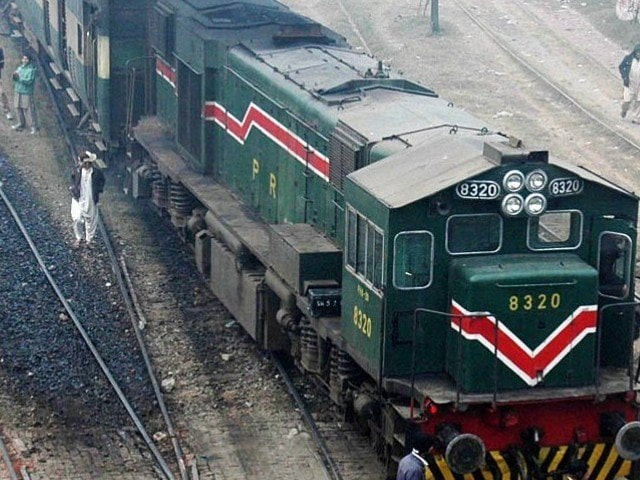Railways’ net deficit reached Rs3b
Minister tells Senate plan in hand to reduce expenditure through improved governance

Minister of State for Law and Justice Shahadat Awan told the Senate on Tuesday that the Pakistan Railways generated Rs28.263 billion revenue, through its operation in the first half of the current fiscal year against the expenditures of Rs52.99.
Responding to a question from Jamaat-e-Islami’s Mushtaq Ahmed, the minister said that 35% of the expenditures were related to pension and 33% to salaries. He added that the railways received a subsidy of Rs21.75 billion as a grant-in-aid from the federal government.
“The net deficit for the period from July 1 to December 31, 2022, was Rs2.977 billion,” the minister told the house. However, Balochistan Awami Party’s Senator Danesh Kumar pointed out that the railways distorted the figures and that its total losses were to the tune of Rs24.727 billion.
Responding to the supplementary question from Kumar, Awan said that the grant-in-aid provided to the railways should be counted as a loss, adding that it was provided by the government from the national exchequer to meet the expenses of the department.
“The first half of the current financial year 2022-23 brought more bad news for Pakistan Railways as the unprecedented floods played havoc with the already dilapidated infrastructure,” he said. He proposed to improve the tracks across the country to run the trains at the speed of 160 kilometres per hour.
Referring to the floods, the minister said that the calamity “not only resulted in revenue loss as train operations were suspended for more than 35 days, but also put a further strain on the department in terms of restoration of the traffic” from meagre resources.
According to the minister, the railways had developed a two-pronged action plan that envisage concentration on core activities and emphasis on revenue generation through non-core activities. A business plan had been prepared to reduce expenditure through improved governance, he added.
“The plan is being implemented in letter and spirit and recent initiatives towards digitisation in the form of Enterprise Resource Planning (ERP) and Railway Automated Booking and Travel Assistance (RABTA) also aimed at increasing efficiency and reducing the revenue-expenditure gap,” he added.
Awan informed the house that the railways had imported 70 new high-capacity wagons to enhance its freight capacity. “Beside, 750 more wagons will be assembled in Pakistan under a transfer of technology agreement with China,” he added.
On a supplementary question from Pakistan Tahreek-e-Insaf’s Dr Zarqa Suharwardy Taimur, Awan replied that the Mainline-1 (ML-I) project was in doldrums in the tenure of previous government but the incumbent government was working on this project on fast-track basis.



















COMMENTS
Comments are moderated and generally will be posted if they are on-topic and not abusive.
For more information, please see our Comments FAQ